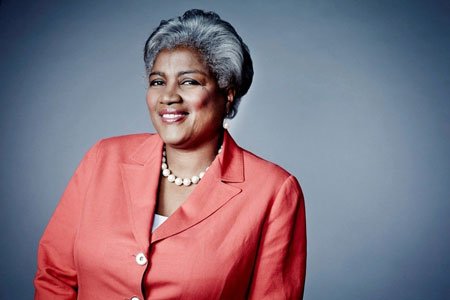(CNN) — April 4, 1968. This was the day that changed the life of a little girl growing up in the segregated South.
Coming home that day from school, we learned the Rev. Martin Luther King Jr. had been shot. “Why would anyone shoot Dr. King?” we asked. We were baffled, saddened, and in shock.
He was a kind man. At least that’s what my grandmother told us. He wanted to help the poor and make a difference for others. My dad said he didn’t carry weapons, but those who disagreed with him, often did.
This was the night that turned my life over to the movement. The civil rights movement.
Had an assassin’s bullet not silenced him, King would be at work. He would be striving still for world peace, for a better world for kids, for justice for those lingering in the criminal justice system. He would continue the fight for fair economic policies — ones that do not favor a single class over almost everyone else.
King would be working for the full restoration of the Voting Rights Act. He would not sit in silence as millions today stand on the threshold of losing their right to vote. He would have condemned the tactics that forced thousands to stand in long lines last month in Maricopa County, Arizona, and the officials who decided to reduce the number of polling sites.
And King would be appalled at the tone and tenor of today’s presidential campaign. Campaigns have never been noted for their lofty words. But they have generally lifted debate, raised visions and defined who we are and where we will go.
This campaign so far will be noted for having coarsened and vulgarized our debate. This campaign, so far, will be infamous for letting fear grip our hearts, choke our compassion and drive us to repress others. This campaign, if we choose unwisely, could be known as the campaign that that began the unwinding of America.
I have never seen a campaign in which so many sophistic arguments were made — arguments that sound plausible but are illogical. For instance, almost every candidate on the GOP side has attacked “political correctness.”
Now, political correctness is defined as avoiding language that could offend others when referencing them, usually disadvantaged people. So, today we say “little people,” instead of other terms that were viewed as derogatory, and that change seems reasonable.
But now, candidates have expanded the notion of “political correctness” to allow them to use language that offends everyone — even language that violates fundamental American values. Candidates dismiss arguments as being “politically correct” to cover their introduction of ethnic and racial stereotypes, their advocacy of inequality and their justification of police surveillance.
The only clear-cut political correctness I see going on is by candidates who insist a person can’t call the public’s attention to their appeals of bigotry and repression. We truly cannot afford that kind of political correctness.
King would clearly say that creating special police patrols in minority neighborhoods, based solely on the religion of most of those living there, violates freedom of religion and our every moral impulse.
King would plainly say if we provide bigger tax breaks for the wealthy, they must provide wages better than $7.25 an hour. No person should have to work two jobs in this country and still struggle to make ends meet or have to apply for food stamps to eat.
No person should have to pay to vote, which is what Voter ID laws effectively require. We have the odd contrast of people urging online voting registration, while some state laws require spending time and money to obtain, in person, costly birth certificates with which, in turn, to pay for a driver’s license to be presented when voting.
Voting ID laws are a little more complex than the examples just mentioned. There are alternative proofs allowed to get the required picture ID. But they all boil down to making it expensive and difficult for certain classes of people to vote.
We are in need of leaders who will appeal to our better selves, who will give us a vision of making America greater, of building on the values that have made us a great and powerful nation.
The dominant vision being offered so far is to take counsel of our fears, to shun the refugee family who is escaping terrorism, to expel the immigrant family who seek better lives, to oppose all citizens who think differently from this as delusional, and to posit all differences of politics as coming from bad people.
Among King’s last words were these: “… Let us move on in these powerful days, these days of challenge to make America what it ought to be. We have an opportunity to make America a better nation.”
We will never make it better by retreating from the values that we hold dearest — the values that millions of American soldiers gave their lives for … and that King gave his life for.
Donna Brazile, a CNN contributor and a Democratic strategist, is vice chairwoman for civic engagement and voter participation at the Democratic National Committee. A nationally syndicated columnist, she is an adjunct professor at Georgetown University and author of “Cooking With Grease: Stirring the Pots in America.” The opinions expressed in this commentary are hers.
